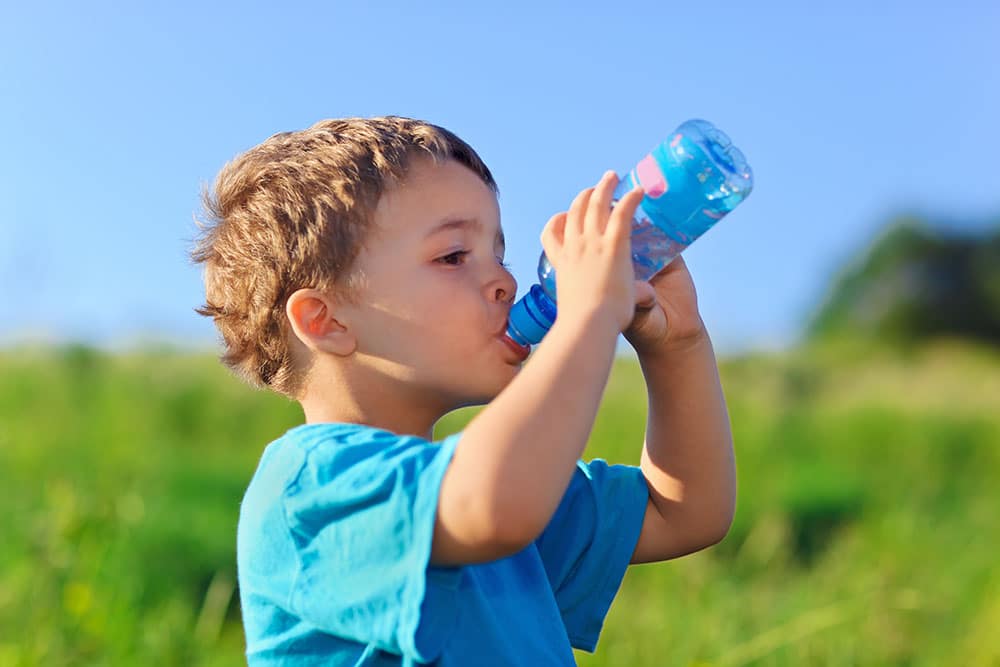Just like adults need to stay hydrated, child hydration is very important. Being well hydrated improves a child’s mood, memory and attention, which is especially important for school. The best way to keep children hydrated is with water, so it’s also economical. After all, tap water is much cheaper than sports drinks, sodas and juice.
Babies can be introduced to water at 6 months old. Because most of an infant’s liquids come from breastmilk or formula, they only need 4 to 8 ounces per day of water. Getting them started that early is great because it builds that healthy habit to drink water. Here’s what kids need to stay well hydrated:
- 1-3 years: approximately 4 cups of beverages per day, including water or milk
- 4-8 years: 5 cups
- Older than 8: 7-8 cups
These amounts can vary, of course, depending on children’s activity levels and if they are outside in heat and humidity.
Drinking water is the key to child hydration, but we all know children prefer sweet sodas, juices and sugary drinks. It’s important to help them start the habit early. Start by being a role model yourself. If they see you drinking water and you encourage them to do the same, your children will be more likely to drink water.
If water tastes “boring,” infuse it with berries, cucumbers, lemons and mint for some added flavor. The kids will keep coming back for more. Also, surprise your kids with a personalized cup or water bottle and encourage them to keep it filled with water.
Other drinks are permitted, of course, but keep in mind that water and milk are all the drinks children really need. Most drinks marketed to kids contain way too much sugar and can lead to poor health. Be sure to limit sugary drinks, including sodas, flavored milk, juice cocktails and sports drinks. Added sugars can lead to excess weight gain, cavities, diabetes and more.
Still, though, it is important to know the signs of dehydration so you can act quickly if you notice:
INFANTS
- Fewer wet diapers (younger than 6 months should only drink breast milk or formula)
- Overly sleepy
- Sunken soft spot on the his/her head
- No tears when crying
OLDER CHILDREN
- Dry lips or sticky mouth
- Less or dark-colored urine (normal urine should be very light yellow, almost clear)
- Sleepy and irritable
- Flushed skin
TEENS
- Dry lips or mouth
- Lightheadedness
- Cramps
- Thirst
- Dark or less urine
- Headache
- Rapid pulse
- Flushed skin
- Feeling excessively hot or cold
If you have any questions or concerns about the importance of hydration in children, please consult with your pediatrician.
Pediatric Partners has three locations to better serve our patients. The Evans office is at 411 Town Park Blvd.; the downtown Augusta office is at 1303 D’Antignac St., Suite 2600; and the new Grovetown office is at 5135 Wrightsboro Road. For more information about Pediatric Partners, call the office at 706-854-2500, visit PedPartners.com, or follow the Pediatric Partners of Augusta Facebook page.

